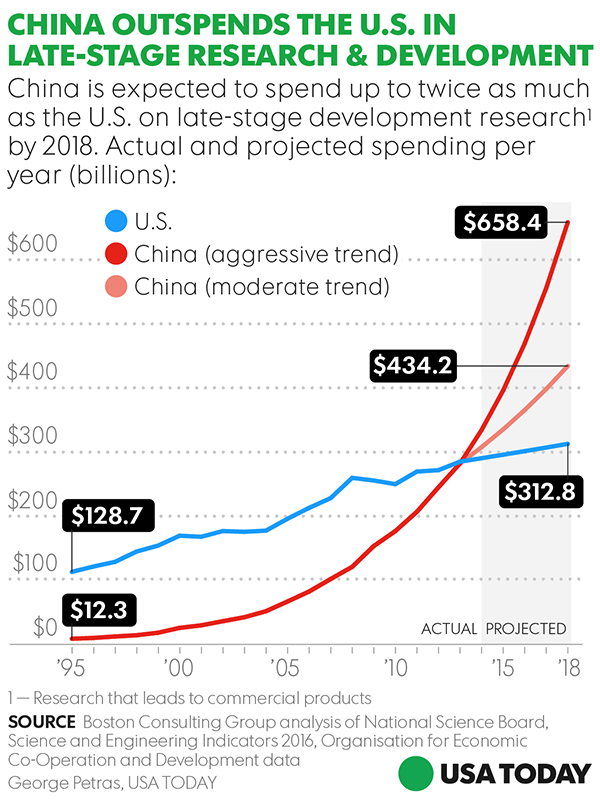Equation
Lieutenant General
For decades, America lost factories and jobs to China but retained a coveted title: the world's leader in inventing and commercializing new products.
Now, even that status has been eroded, and it's hurting the economy.
While the United States is still at the top in total investment in research and development — spending $500 billion in 2015 — has made a startling finding: A couple of years ago, China quietly surpassed the U.S. in spending on the later stage of R&D that turns discoveries into commercial products. And at its current rate of spending, China will invest up to twice as much as the U.S., or $658 billion, by 2018 on this critical late-stage research.
In other words, the U.S. Is doing the hard work of inventing new technologies, and China, among other countries, is reaping the benefits by taking those ideas and turning them into commercial products,the report says.
“Other countries are free-riding on the U.S. investment," says Justin Rose, who co-authored the BCG study.
.oembed-asset-photo-image { width: 100%; }

To be continued
This is not good for the US because it won't be able to attract and retain anymore overseas talent.
